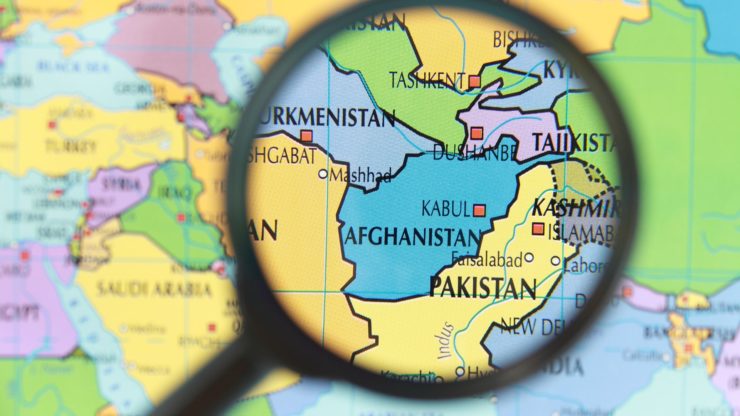
On 18th March 2024, Pakistan conducted airstrikes inside Afghanistan, targeting the sanctuaries of commanders of Tehreek e Taliban Pakistan (TTP). The attacks were conducted in retaliation to the suicide attack conducted on a military check post in North Waziristan, a Pakistani district located near the Pak-Afghan border, which resulted in the death of seven Pakistani soldiers. Pakistani officials have claimed the death of 8 terrorists in the retaliatory airstrikes. The move has further escalated tensions between the two countries. The Taliban government in Afghanistan has strictly condemned these attacks. Zabihullah Mujahid, the spokesperson of the Taliban government in Afghanistan, issued a statement on the social media platform X stating, “The Islamic Emirate of Afghanistan, which has a long experience of freedom struggle against the superpowers of the world, does not allow anyone to invade its territory.” He also warned that the consequences of such incidents will be beyond Pakistan’s control. Mujahid also refuted the allegations of the presence of TTP terrorists in Afghanistan and the use of Afghan soil for conducting terrorist attacks inside Pakistan or any other country.
Relations between the two countries have been simmering since Kabul’s takeover by the Afghan Taliban. Pakistan and the Afghan Taliban have always been perceived allies. Afghan Taliban were initially trained by the Pakistan Army against the Soviet Union under the patronage of the United States. However, the group later emerged as the biggest enemy of the US. The latter even invaded to deal with the Taliban threat, which it created as a proxy in the past against its Cold War enemy. Pakistan was one of the key allies of the United States in its War on Terror in Afghanistan. Nonetheless, the US often accused Pakistan of supporting the Afghan Taliban covertly, ignoring the sufferings of the latter due to its support to the United States. Pakistan had an upper hand in its relations with the Afghan Taliban due to the Tribal relations among the Pashtun ethnicity residing across the borders of both countries. Pakistan played a pivotal role in providing the United States a face-saving to withdraw from Afghanistan by forcing the Afghan Taliban to negotiate with the US.
Many believe that Pakistan used the Afghan Taliban to create a strategic depth along its Western border. Pro-Afghan Taliban sentiment was present among some religious sects in Pakistan, especially the Wahabi and Deobandi schools of thought. Kabul’s takeover by the Afghan Taliban was celebrated inside Pakistan. However, this euphoria turned out to be a folly. The Afghan Taliban, who were once perceived to have a soft corner towards Pakistan, proved it otherwise through their actions. Afghanistan has long been known as a safe haven for terrorist groups such as Islamic State-Khurasan (ISK), TPP, and BLA – to name a few. Terrorist activities surged inside Pakistan after the Taliban’s takeover of Afghanistan. According to the Pakistan Institute for Conflict and Security Studies (PICSS), the nation witnessed a 70 percent surge in terrorist attacks in 2023. CPEC was one of the key targets of the terrorists. TTP and BLA claimed responsibility for different terrorist attacks inside the country.
Islamabad has repeatedly claimed that the terrorists are using Afghan soil to conduct terrorist attacks inside Pakistan. The country has repeatedly expressed its concerns over the presence of terrorist groups inside Afghanistan, which pose a great threat not only to the security of Pakistan but to the stability of the region. However, the interim government in Afghanistan has always refuted all such claims. The interim Taliban government in Afghanistan always held that no foreign group is allowed to use Afghan soil to conduct terrorism in any of the neighboring countries. Pakistan, on the other hand, holds that the Afghan Taliban are under the moral obligation to provide safe haven to terrorist outfits like TTP as the latter helped them against the US during the War on Terror. Pakistani officials also blame regional rival countries for using these terrorist groups as proxies against Pakistan.
Relations between Pakistan and Afghanistan are rapidly deteriorating. Pakistan’s expulsion of unregistered Afghan refugees has played a pivotal role in degenerating relations between the two states. Increasing engagement between India and the Afghan Taliban is also infuriating Pakistan. Experts have warned that the recent escalation can even result in a small-scale war between the two nations if the authorities do not act prudently. Although the possibility of a war between the two states has meager prospects, terrorist activities inside Pakistan are inclined to elevate. A surge in terrorist activities in Pakistan will further weaken the already stagnant economy of the country, along with distorting its social fabric. Moreover, Pakistan’s failure to engage the Afghan Taliban effectively can also result in further enhancement of relations between India and Afghanistan, which would augment adversities for Pakistan at the regional and global levels.
On the other hand, the Afghan Taliban will also lose one of the few supporting voices they have at the global level. Pakistan has long been advocating active engagement by the global leaders with the interim Afghan government to avoid the imminent humanitarian crisis in the country. Pakistan’s Former Foreign Minister, Bilawal Bhutto, repeatedly called on the international community for a constructive and pragmatic engagement with the interim Afghan government. Pakistan has never advocated international sanctions against Afghanistan. However, the contemporary situation can prove detrimental for both the countries. Authorities in both countries need to adopt a prudent and pragmatic approach to resolve bilateral disputes, and otherwise instability will ensue in the whole region. Key regional players, Russia and China, also need to play their role to avoid a catastrophe unfolding in the region in coming days.
Taut Bataut – is a researcher and writer that publishes on South Asian geopolitics, exclusively for the online magazine “New Eastern Outlook”.